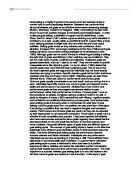Goal setting is a highly important tool used in sport and exercise and is a current topic in sport psychology literature.
Goal setting is a highly important tool used in sport and exercise and is a current topic in sport psychology literature. Research has confirmed that almost all athletes set goals as an effective performance enhancing strategy (Burton, Weinberg, Yukelson & Weigand, 1998). Goal setting has also been shown to promote positive changes in important psychological states. In order to discuss goal setting, a definition of a goal must be determined. Locke, Shaw, Sarri & Latham (1981) define a goal as attaining a specific standard of proficiency on a task, usually within a specified time limit. A goal offers a focal point, allowing athletes to target their time and effort into the most useful activities. Setting goals works as they enhance self confidence, direct attention, increase effort, encourage persistence in the face of failure and goal setting can allow new problem solving strategies to be developed (Locke, 1968). Although goals can be useful, the key to effective goal setting is setting the right kind of goals and sticking to them until they are accomplished. They are two main types of goals; subjective and objective. Subjective goals are general statements, such as “I want to do well”. They are not stated in specific measurable terms like objective goals. Locke & Latham (1985) stated that specific goals were more effective than subjective goals. This is due to the fact that subjective goals are vague and an individual may not know exactly what they are trying to achieve. Specific objective goals let the individual know precisely what they are trying to accomplish. Objective goals can take three different forms. These are outcome, performance and process goals. Outcome goals usually concentrate on an end result, such as coming first in a race. Individuals have little control over outcome goals as it depends on the ability and performance of an opponent. Athletes have more control over performance goals as they encourage improvement relative to past performances, rather than performances of others. Process goals focus on the procedures an athlete completes during a routine in order to do well. A study by Kingston & Hardy (1997) reported that self efficacy, cognitive anxiety and confidence are positively influenced by







